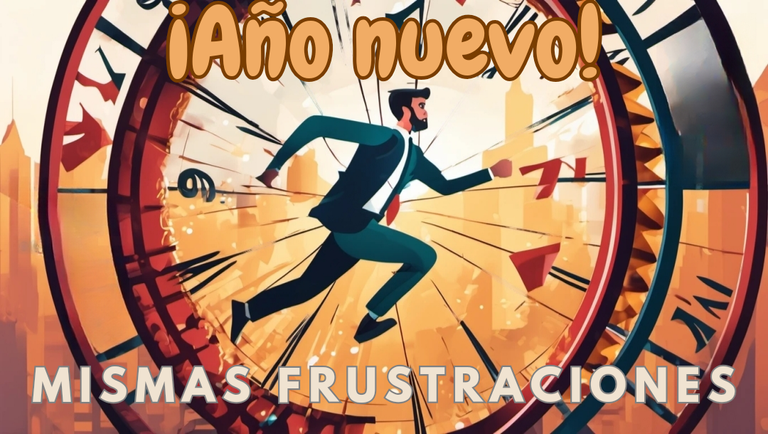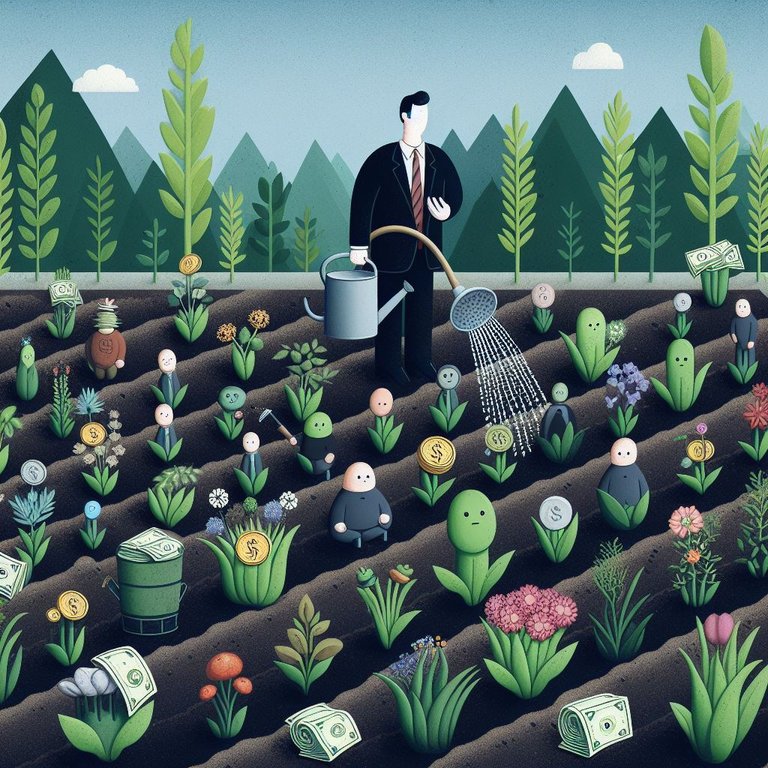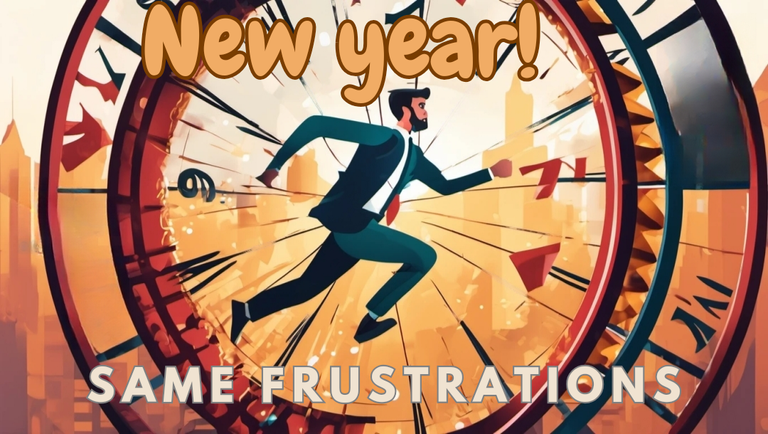
Recién iniciamos un nuevo año, y como siempre, es motivo de alegría y júbilo para muchas personas alrededor del mundo. Las razones de su festejo son diversas, pero generalmente asociadas a la creencia de que con cada año que inicia, comienza un ciclo de buenaventura y dicha que nos permitirá cumplir con nuestros propósitos y aspiraciones personales. Ello tiene su raíz en la antigüedad, ya que el año nuevo se celebraba de diferentes maneras en distintas culturas. En muchas de ellas, el año nuevo se asociaba con el comienzo de la primavera o el otoño, y se celebraba con festivales y rituales para dar la bienvenida al nuevo año y pedir buena suerte y prosperidad, pero también al renacimiento de algún dios generoso.
Por ejemplo, en el antiguo Egipto, el año nuevo se celebraba en el mes de Thot, que comenzaba a finales de septiembre o principios de octubre. Se creía que el dios Ra, el dios del sol, renacía en este momento, y se celebraba con festivales y rituales para honrar a Ra y pedir su bendición para el nuevo año. O también en el caso de la antigua Grecia, en donde el año nuevo se celebraba en el mes de Gamelión, que comenzaba a finales de enero o principios de febrero. Se creía que el dios Dionisio, el dios del vino y la fertilidad, renacía en este momento, y se celebraba con festivales y rituales para honrarlo y pedir su bendición para el nuevo año.
Podemos ver que a lo largo de la historia han existido creencias o rituales que celebran la fertilidad y la prosperidad asociadas fundamentalmente a las cosechas, ya que la agricultura ha sido por mucho tiempo la actividad fundamental de sustento de la humanidad. Sin embargo, poco a poco y con el paso del tiempo y con el desarrollo de la sociedad en general, esas mismas celebraciones y rituales se fueron modificando hasta obtener el sentido que tienen hoy. Es así como ya no se celebra o se pide por una buena cosecha, sino que ahora las personas reciben el nuevo año con pretensiones relacionadas a la superación individual, con metas y aspiraciones personales. Todo ello es debido al desarrollo de la sociedad que ha posibilitado economías más eficientes que años atrás, además del fenómeno de la globalización y el capitalismo presente en nuestros días, que ha causado que las personas hayan desarrollando una conciencia más centrada en sí mismas, como resultado de la creciente desigualdad social que conduce a una mayor individualización. Esto genera una contraposición entre lo individual y lo colectivo.
Es así cómo las lógicas consumistas de mercado nos han impactado tanto al punto de que año tras año, sin darnos cuenta, reescribimos el mismo bucle ritualizado en forma de «deseos para el año nuevo», sin darnos cuenta de la repetición que eso conlleva. Es así cómo año tras año cada vez son menos las satisfacciones percibidas y más las frustraciones repetidas. Quizás las cosechas sí se sigan celebrando como tiempos atrás y nada haya cambiado, pero esta vez quizás nosotros seamos esa cosecha, y me refiero a que nos han programado para funcionar así; para cada 365 días en el calendario gregoriano, resetearnos y decir «este sí», como si la nueva vuelta alrededor del Sol trajera por sí misma nuevas posibilidades u oportunidades que no existían los 365 días anteriores. Si lo pensamos detenidamente, esto no es más que una estrategia de mercado para mantener a las fuerzas laborales emocionalmente productivas y así seguir explotándonos mientras nos perdemos en los laureles pensando que si empezamos el año con las mejores de las positividades, vamos a lograr sea lo que sea que nos hayamos propuesto.

En este caso, el año nuevo viene a ser ese tapón que oculta -o que intenta ocultar- la falta que soportamos, y quizás como idea nos sirva para hacer más llevadera nuestras vidas, pero cuando nos quedamos en la superficie celebrando una falsa creencia basada en la idea irracional de que con cada vuelta alrededor del Sol se solucionarán nuestros problemas, no hacemos más que correr y seguir corriendo en una rueda de hámster que nunca para. Ya Jacques Lacan lo decía al inicio de su lección del 10 de enero de 1968:
El año nuevo me da la oportunidad de abordarlo por esa punta. Un acto, está ligado a la determinación del comienzo, y muy especialmente allí donde hay necesidad de hacer Uno precisamente porque no lo hay.
Sin embargo, la creencia popular asume per se que cada año nuevo abre la puerta a una suerte de posibilidades mientras niega o anula al anterior. Todo queda explicitado en la frase «año nuevo, vida nueva», como si cada 1ro de enero nos reiniciáramos y olvidáramos las causas reales de nuestras frustraciones y sufrimientos. Olvidamos que somos nosotros quienes por ciertas condiciones contingentes no pudimos lograr algo o no supimos cómo hacerlo, pero ey, eso no está mal. Es precisamente ese olvido el que provoca que una y otra, y otra vez tropecemos con la misma piedra y sigamos estancados en un punto de no retorno. Haciendo uso de un cliché: «quien no conoce la (su) historia, está condenado a repetirla», y es por eso que debiéramos reconciliarnos con nosotros mismos y con nuestros imposibles. Un año nuevo no va a traer por sí solo una nueva posibilidad si no logramos asumir y asimilar nuestras propias condiciones objetivas y subjetivas, así como las fortalezas u oportunidades que se desprenden de ellas, no de una unidad de tiempo.
El año nuevo puede ser motivo de celebración, y de hecho, lo es en todo el mundo, pero no sigamos esperando pasivamente que un Otro ya sea persona o cosa, llegue a nuestras vidas a arreglárnosla, mientras nos negamos como personas así como nuestras faltas y limitaciones constitutivas. La clave está en ayudar a la suerte a que haga su trabajo, siempre con los pies bien puestos en la Tierra; esa única merecedora del reconocimiento de soportarnos mientras le da otra vuelta alrededor del Sol. Solo así, el año nuevo adquirirá un significado verdaderamente práctico y beneficioso para todos y todas. Freud, en el 1896, en «Un cuento de Navidad»:
Toda fiesta celebra a la vez un duelo y un pacto. El primero es por algo perdido: los que no están, lo que no se logró. Y el pacto es un nuevo arreglo con la divinidad, sea Dios, la vida, la contingencia, el estado de cosas, lo irremediable, lo imposible, etc. En ambos casos, nos sigue convocando a desafiar el futuro.
Recuerda siempre que el año, al igual que los meses, días, horas, minutos y segundos, es una unidad de medida temporal, y que eso que se celebra a lo largo de todo el mundo no es más que un día detrás de otro; y no hay nada más bonito que precisamente un día detrás de otro. Así que no te olvides, de ti, de la persona que dices ser; esa que un nuevo año no va a borrar ni va a hacer que triunfes, mientras sigas pretendiendo que algo es diferente solo porque cambió la fecha en el calendario.
English version

As we start a new year, it is, as always, a cause for joy and celebration for many people around the world. The reasons for their celebration are diverse, but generally associated with the belief that with each new year, a cycle of good fortune and happiness begins, allowing us to fulfill our personal goals and aspirations. This belief has its roots in antiquity, as the new year was celebrated in different ways in different cultures. In many of them, the new year was associated with the beginning of spring or autumn, and it was celebrated with festivals and rituals to welcome the new year and to ask for good luck and prosperity, as well as the rebirth of a generous god.
For example, in ancient Egypt, the new year was celebrated in the month of Thoth, which began at the end of September or beginning of October. It was believed that the god Ra, the sun god, was reborn at this time, and it was celebrated with festivals and rituals to honor Ra and ask for his blessing for the new year. Similarly, in ancient Greece, the new year was celebrated in the month of Gamelion, which began at the end of January or beginning of February. It was believed that the god Dionysus, the god of wine and fertility, was reborn at this time, and it was celebrated with festivals and rituals to honor him and ask for his blessing for the new year.
Throughout history, there have been beliefs and rituals celebrating fertility and prosperity primarily associated with harvests, as agriculture has long been the fundamental means of sustenance for humanity. However, over time and with the development of society in general, these celebrations and rituals have gradually evolved to have the meaning they have today. Thus, it is no longer about celebrating or asking for a good harvest, but rather people welcome the new year with intentions related to personal improvement, goals, and aspirations. This shift is due to the development of society, which has enabled more efficient economies than in the past, as well as the phenomena of globalization and capitalism present in our days, which have led people to develop a more self-centered consciousness as a result of growing social inequality, leading to greater individualization. This creates a contrast between the individual and the collective.
It is how the consumerist market logics have impacted us to the point that year after year, without realizing it, we rewrite the same ritualized loop in the form of "wishes for the new year," without realizing the repetition that this entails. Year after year, there are fewer perceived satisfactions and more repeated frustrations. Perhaps the harvests are still being celebrated as in times past and nothing has changed, but this time perhaps we are that harvest ourselves. I mean that we have been programmed to function this way; for every 365 days in the Gregorian calendar, we reset ourselves and say "this time," as if the new orbit around the Sun itself brings new possibilities or opportunities that did not exist in the previous 365 days. If we think about it carefully, this is nothing more than a market strategy to keep emotional labor forces productive and continue exploiting us while we get lost in our laurels thinking that if we start the year with the best positivity, we will achieve whatever we have set out to do.

In this case, the new year comes to be that plug that hides - or tries to hide - the lack that we endure, and perhaps as an idea it serves us to make our lives more bearable, but when we stay on the surface celebrating a false belief based on the irrational idea that with each orbit around the Sun our problems will be solved, we do nothing but run and keep running on a hamster wheel that never stops. Jacques Lacan already said at the beginning of his lecture on January 10, 1968:
"The new year gives me the opportunity to approach it from that point. An act is linked to the determination of the beginning, and very especially where there is a need to make One precisely because it is not there."
However, popular belief assumes per se that each new year opens the door to a kind of possibilities while denying or nullifying the previous one. Everything is explicit in the phrase "new year, new life," as if every January 1st we reset and forget the real causes of our frustrations and sufferings. We forget that it is us who, due to certain contingent conditions, could not achieve something or did not know how to do it, but hey, that's okay. It is precisely this forgetfulness that causes us to stumble over the same stone again and again and remain stuck at a point of no return. Using a cliché: "those who do not know their (own) history are doomed to repeat it," and that is why we should reconcile with ourselves and with our impossibilities. A new year alone will not bring a new possibility if we do not manage to assume and assimilate our own objective and subjective conditions, as well as the strengths or opportunities that arise from them, not from a unit of time.
The new year can be a reason for celebration, and in fact, it is all over the world, but let's not continue passively waiting for an Other, whether a person or a thing, to come into our lives to fix it for us, while we deny ourselves as people as well as our constitutive lacks and limitations. The key is to help luck do its job, always with our feet firmly on the ground; the only one deserving of recognition for enduring us while taking another orbit around the Sun. Only then will the new year acquire a truly practical and beneficial meaning for everyone. Freud, in 1896, in "A Christmas Carol":
"Every celebration simultaneously commemorates a loss and makes a new pact. The first is for something lost: those who are not here, what was not achieved. And the pact is a new arrangement with divinity, whether God, life, contingency, the state of things, the irremediable, the impossible, etc. In both cases, it continues to challenge us to defy the future."
Always remember that the year, like months, days, hours, minutes, and seconds, is a unit of temporal measurement, and that what is celebrated all over the world is nothing more than one day after another; and there is nothing more beautiful than precisely one day after another. So don't forget about yourself, about the person you claim to be; that a new year will not erase or make you succeed, as long as you keep pretending that something is different just because the date on the calendar changed.

Créditos | Credits
Imágenes utilizadas | Images used:
Todas las imágenes son de mi propiedad y fueron generadas con la IA de Remix y de Bing Image Creator, y editada en el caso de la imagen de portada, con Canva | All images are my property and were generated with Remix and Bing Image Creator AI, and edited in the case of the cover image, with Canva.
Nota | Note: En el caso de la imagen de portada, fue generada con Remix, pero por motivos de funcionalidad de la app, no emite un enlace a la misma | In the case of the cover image, it was generated with Remix, but due to the app's functionality, it does not emit a link to it.
Congratulations @genrigp! You have completed the following achievement on the Hive blockchain And have been rewarded with New badge(s)
Your next target is to reach 1250 upvotes.
You can view your badges on your board and compare yourself to others in the Ranking
If you no longer want to receive notifications, reply to this comment with the word
STOPCheck out our last posts: